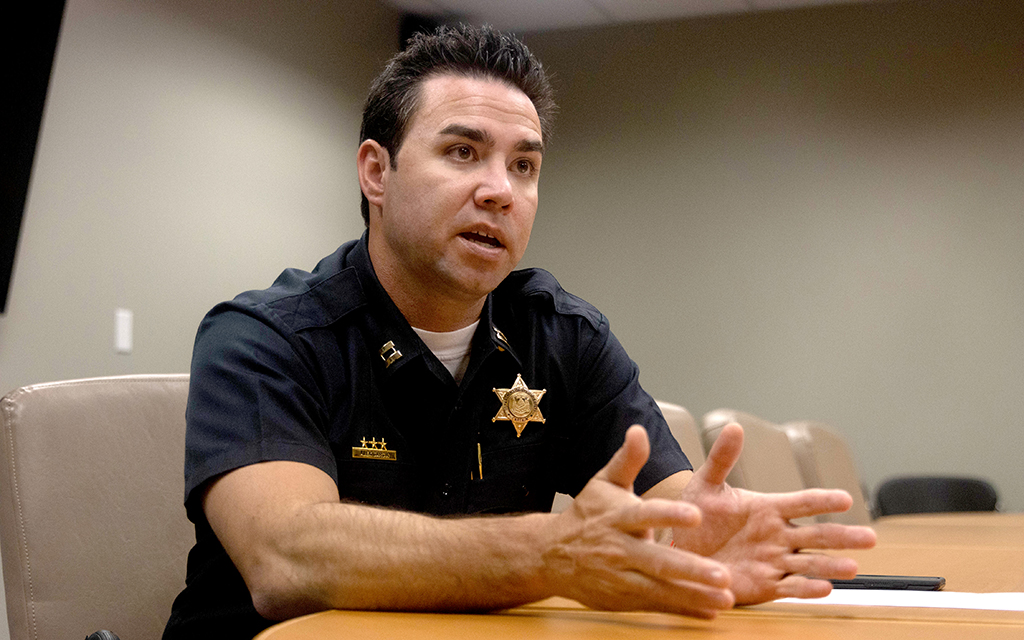‘Back the Blue’ laws protect police, expand qualified immunity from lawsuits
ALTOONA, Iowa – After the nationwide protests in the wake of George Floyd’s murder, states have enacted laws to protect police under hate crime law, cementing qualified immunity from lawsuits and, in Arizona, a limit on filming police that has drawn controversy.
Exodus from police departments could be an opportunity for change
PHOENIX – Police departments across the country are in a workforce crisis. Some leaders see this as an opportunity, and they’re trying harder to attract candidates who reflect the communities they serve, with a focus on women, people of color and members of the LGBTQ+ community.
Policymakers, activists and nonprofits lead way to bring more transparency to police departments
ARLINGTON, Texas – The call to increase transparency has become a standard rallying cry in police reform, but efforts have met with resistance. Some states, cities and police departments have made progress to open records. And sometimes, outside forces have stepped in when they don’t.
Police, public and policymakers work to improve responses to mental health crises
SALT LAKE CITY – Police have become the de facto mental health responders across the country, often with tragic results. Most strategies to deal with mental health calls focus on shifting funds to social services, creating diversion programs and better training for officers. Experts say the solution relies on a combination of efforts.
Battle for police reform has been fought for decades
OAKLAND, Calif. – Activists are pushing for police reform, building on the struggles of the past to improve the future of policing in the U.S. To long-time activist Elaine Brown in Oakland, that means being willing to risk your job, to consistently confront the uncomfortable.
States seek ways to provide police misconduct information
SALT LAKE CITY – About a dozen states provide what’s commonly known as “integrity bulletins,” which contain information about complaints against law enforcement and investigation outcomes, but typically don't include identifying information – such as the officer’s name.






